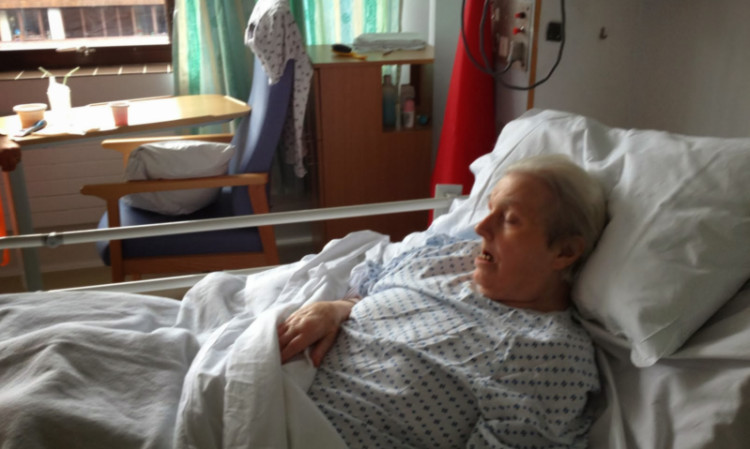
Hundreds of failings in elderly care provided by Scotland’s hospitals have still to be put right nearly two years after many were first identified.
New figures show just a handful of the 303 shortcomings spotted by watchdogs across 18 hospitals have been verified as fully fixed by Healthcare Improvement Scotland (HIS).
Patients being transferred between wards in the middle of the night, untreated bedsores and falls are typical of problems repeatedly highlighted by inspectors.
In one case an elderly patient received no food for 10 days because hospital staff could not fit a feeding tube.
In total 14 of the identified shortcomings have been fully dealt with according to HIS, with action on a further 177 ongoing.
The rest have been reported as fixed by health boards but have yet to be inspected by HIS.
Critics last night warned patients are suffering while the NHS is too slow to deal with the problems identified. Labour MSP Duncan McNeil, convenor of the health committee, said: “The Scottish government has been singing loudly about its dementia strategy but these figures show the reality is very different.
“The majority in hospitals are older people and deserve much better. What is particularly damning about this is the health boards are being judged by the inspectors on their own guidelines, the inspectors are simply trying to get them to keep to their own agreed standards and it is not working in so many respects.
“My concern is the health boards are more worried about the cycle of inspections than the root problems and what is happening in the months or years between a failing being identified and then fixed.”
HIS figures released under freedom of information show that a total of 303 “areas of improvement” have been identified in its 24 hospital inspection reports since 2012.
Just over a third of the failings relate to “care planning for dementia” with every single HIS report warning that screening for the condition on admission to hospital is “not routinely being carried out”.
Of the 303 areas of improvement, health boards have reported 97 have been completed though this has still to be verified by HIS, while efforts to address a further 177 issues are “ongoing”.
Margaret Watt, chairwoman of the Scotland Patients Association, said: “I am shocked that so many failings have not been addressed.
“To see the same problems arising across the whole country is worrying. Are lessons not being learned?”
Last year Jim Martin, who as public services ombudsman deals with complaints of mistreatment in the NHS, told MSPs: “I feel strongly that if patients, friends and family were being listened to effectively, regulators should not be highlighting problems months and years after complaints have been made on the same points.”
He added that in some cases, there is “reluctance for [health] boards to accept criticisms of their own systems and staff”.
A HIS spokesman said: “Follow-up activity is risk-based and can include an unannounced inspection visit or a meeting with the NHS board. We are only able to verify how many of these areas of improvement have been met in the agreed time span for those hospitals that have received a follow-up inspection. It is our intention to re-visit all inspected hospitals to report at first hand.”
A Scottish government spokesman said: “A robust scrutiny regime is in place across NHS Scotland and the care sector.
“HIS works closely with health boards to ensure that any issues picked up through the inspection process are promptly acted upon. HIS will then take follow up action to ensure any issues have been addressed.”
The fact the majority of failings identified by inspectors relate to dementia care was no surprise to Peter Tulloch.
The 56-year-old launched a legal action against the NHS last year amid claims his mum starved to death in an Edinburgh hospital.
Jean Tulloch, 83, was given just one day’s calorie intake in the space of three weeks after being admitted for a urinary tract infection. While Jean’s death certificate officially listed “end-stage dementia” as killing her, she was on the controversial Liverpool Care Pathway (LCP) which Peter describes as the “starvation diet” and the certificate also notes her diet “materially contributed” to the former nurse’s death.
Peter said: “These new figures are shocking but sadly they are not surprising. I have little confidence that lessons are being learned from these failings.
“The hospital where my mother died, the Western General in Edinburgh, was inspected by HIS just two weeks after her death. They reported a shortage of beds, so in my mind it is not a coincidence that she was on the LCP.”

Enjoy the convenience of having The Sunday Post delivered as a digital ePaper straight to your smartphone, tablet or computer.
Subscribe for only £5.49 a month and enjoy all the benefits of the printed paper as a digital replica.
Subscribe